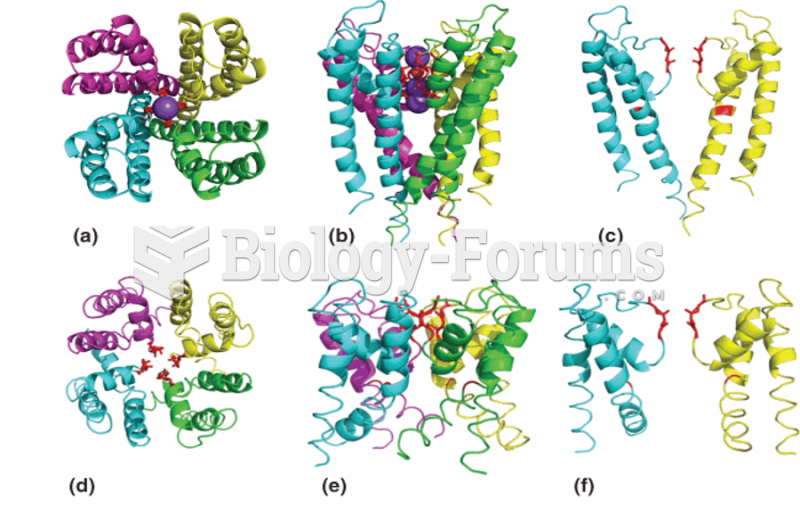|
|
|
The average human gut is home to perhaps 500 to 1,000 different species of bacteria.
Hippocrates noted that blood separates into four differently colored liquids when removed from the body and examined: a pure red liquid mixed with white liquid material with a yellow-colored froth at the top and a black substance that settles underneath; he named these the four humors (for blood, phlegm, yellow bile, and black bile).
Asthma cases in Americans are about 75% higher today than they were in 1980.
Cancer has been around as long as humankind, but only in the second half of the twentieth century did the number of cancer cases explode.
The first successful kidney transplant was performed in 1954 and occurred in Boston. A kidney from an identical twin was transplanted into his dying brother's body and was not rejected because it did not appear foreign to his body.







